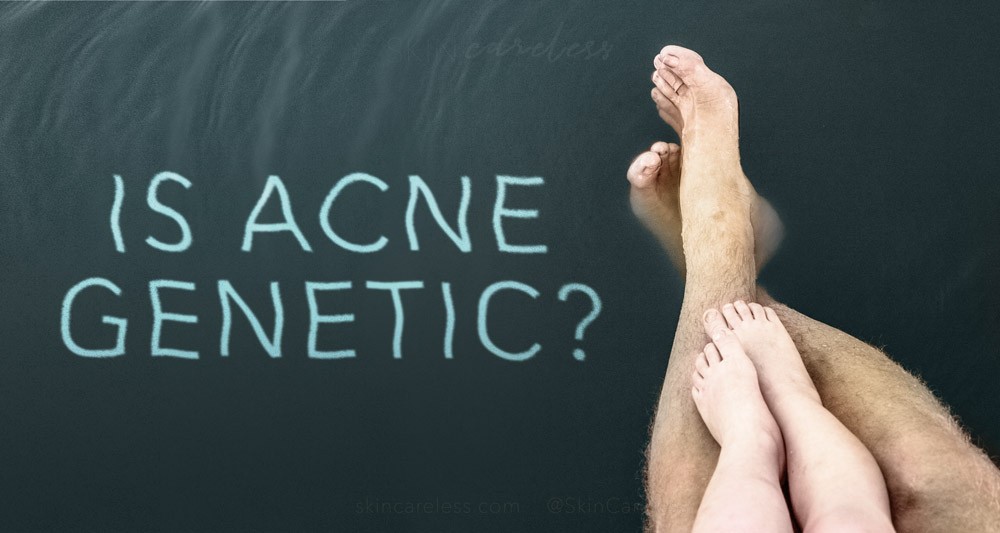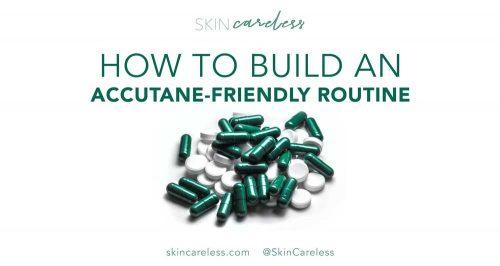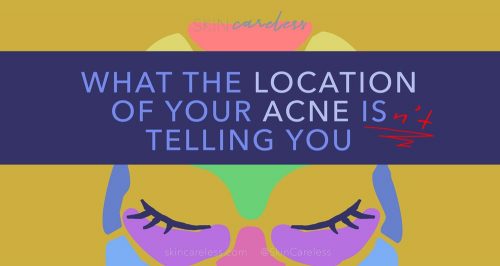I think we’ve all had that one point where we’ve looked into the mirror and wondered: “Why is my skin so bad, even though I try so hard? Surely my acne must be more than just bad luck?“. And inevitably, we begin to wonder whether it’s something we can blame on our parents.
Genetics are a powerful thing, and in many cases of illness and disease there’s a strong genetic link. Tons of people want to know whether or not acne is something that’s passed from parent to child, or if it’s just a freak occurrence.
Maybe you suffered from acne as a teenager and want to know whether to expect the worst for your kids. Maybe you’re wondering why you got acne but your sister didn’t. Maybe you just want to shift the blame somewhere else to feel a little better about how your skin is looking right now.
Is acne hereditary?
The simple answer is: yes – acne is hereditary – to an extent. If your parents had it, you should be on the lookout as well. But let’s get a little more specific.
Firstly, let’s just say that genetics aren’t the only way to get acne, and it can definitely occur randomly.
But studies have shown that those who are born to parents who suffered from acne themselves statistically tended to get acne earlier in their life and more severely than those with acne-free parents. Moreover, they struggled with higher incidence of relapses after treatments like Accutane, and worse residual marks and scars.
The current thinking is that somewhere around 75-85% of the appearance of someone’s acne could be thanks to genetics. The rest is dependent on their environment aka. how they treat their skin, their health, their habits etc.
What exactly is it that I’ve inherited?
What isn’t so easy to explain is why exactly your family’s skin genes are so lousy. Scientists haven’t been able to find an ‘acne gene’ per se, but rather a range of genetic skin trails that add up to explain why your skin is as bad as your parents’. This includes features like hyper-keratinisation, overly oily or thick sebum, a more sensitive immune system, or a hormone imbalance.
How to treat hereditary acne
So if there’s so much you seemingly don’t have control over, what can you do to minimise the severity of otherwise hereditary acne?
Well, hereditary acne is truly like any other kind of acne. It doesn’t have a specific targeted treatment, just the usual stuff. But on the bright side, you do have the benefit of getting ahead and having a clue where it might come from and some people in the know to ask for advice.
Here’s some ways you can leverage the genetic component of your acne and just improve your skin all-round.
Early prevention
Beginning as young and quickly as possible gives skin the best chance of staying healthy, so if you’re a parent who suffered from acne themselves, be sure to raise this with your child before puberty. This gives them time to get into the swing of a good skin routine and habits before the worst hits, as well as sharing with them what’s been known to work for their family members who suffered from acne. If you can nail down a treatment that’s helped others before, you’ll be more likely to treat the correct cause of the acne as it’s probably the same reason why they’ve got it too.
Hygiene
A good understanding of skin-, product- and personal hygiene is essential. Regardless of where it’s come from, most acne is bacterial acne and it needs to be treated like the skin condition it is. Proper cleanliness and some easy habits will make everything so much more sanitary and cut down on the spread of pimples.
A great routine
No matter the cause, a well-targeted and informed skin care routine is the best long-term remedy for almost any skin problem. Good cleansing and moisturising products will minimise bacteria and sebum and keep the skin healthy. Then, depending on the kind of acne, you can go for different acne-fighting ingredients. Start here if you need help creating a beginner’s skin care routine.
Healthy habits
Ensure you’re giving your skin the best environment to heal as possible by removing external stressors. Here’s some of the most common and worst things people do everyday that have a negative impact on their skin. The happier your body is, the more this will reflect in the strength of your skin.
Take control of other skin issues
Control over and proper treatment of other comorbid or acne-like infections such as fungal folliculitis, allergies, eczema, rosacea, etc. will make your skin as healthy as it can be to fight off the acne. Plus, it’ll allow you to better see what acne treatments are working and what aren’t.
Get your hormones checked
An often-ignored acne trigger is actually hormone levels, which can be very genetic-based. If severe or cystic acne is a problem in your family, consider a blood test to see if you overproduce hormones such as androgens which would dramatically increase the likelihood of acne, but luckily can be treated.
Anti-inflammatory diet
Many people swear by reducing or eliminating inflammatory foods and/or foods they are intolerant to, to allow their entire body to dial down the immune response which is responsible for the redness and swelling in acne. To test and see whether this might help you, keep a food diary and skin diary and compare the patterns in when your skin is best and when it’s worst. After that, try an elimination diet of the foods that you’ve associated with bad skin, or book a visit to an allergist who can test for food sensitivity.






[…] Unlikely non-inflammatory acne, which is extremely common and can sometimes crop up from things like a les-than-perfect hygiene routine, more severe inflammatory acne often has a genetic component. […]